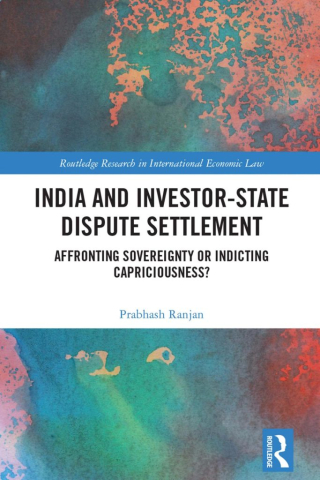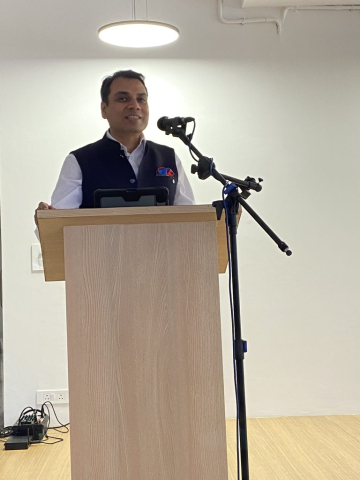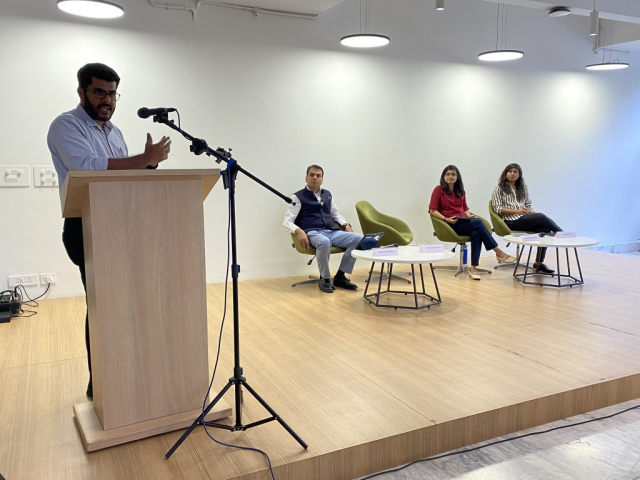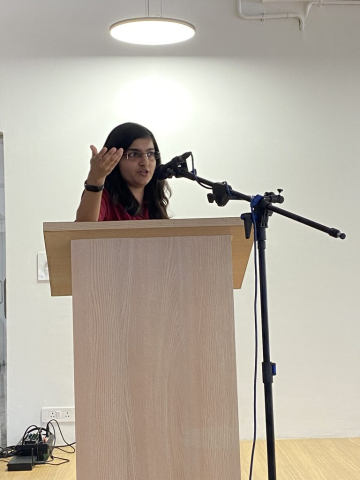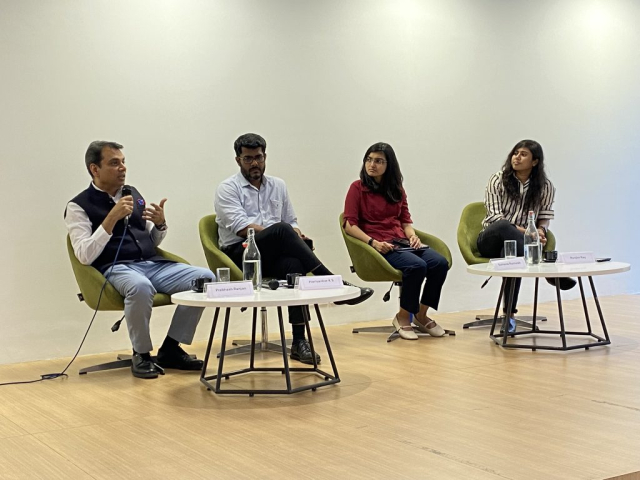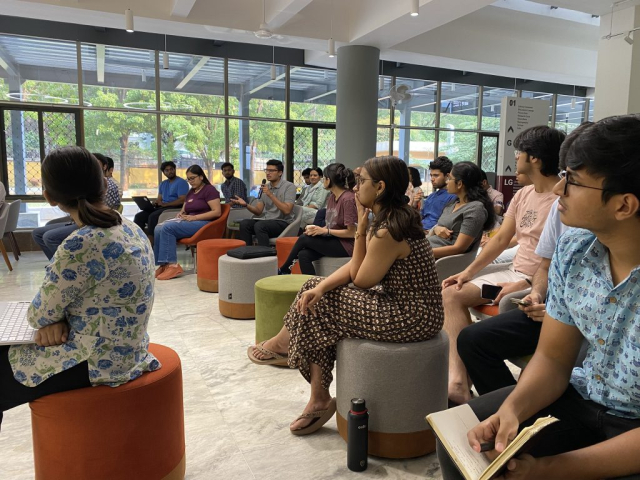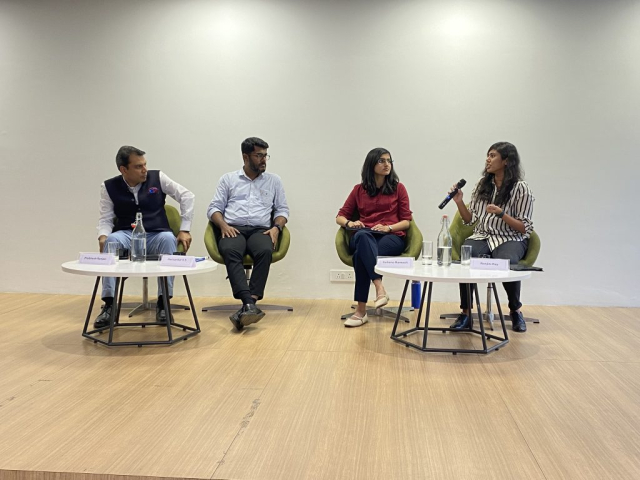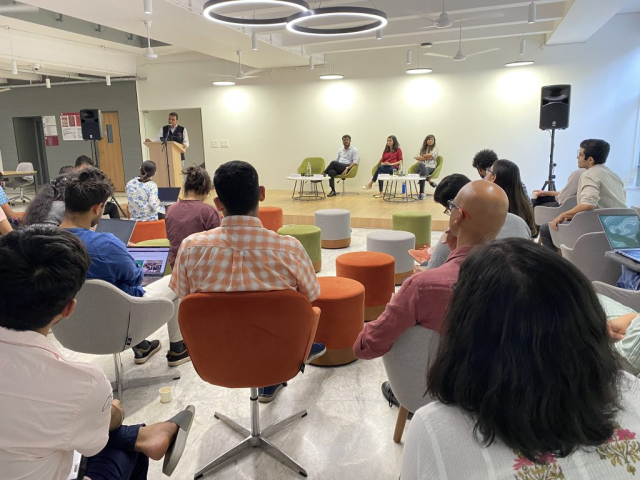Book Talks@NLS Library | ‘India and Investor-State Dispute Settlement’
NLSIU Library
Friday, March 28, 2025, 4:00 pm
Open to the public
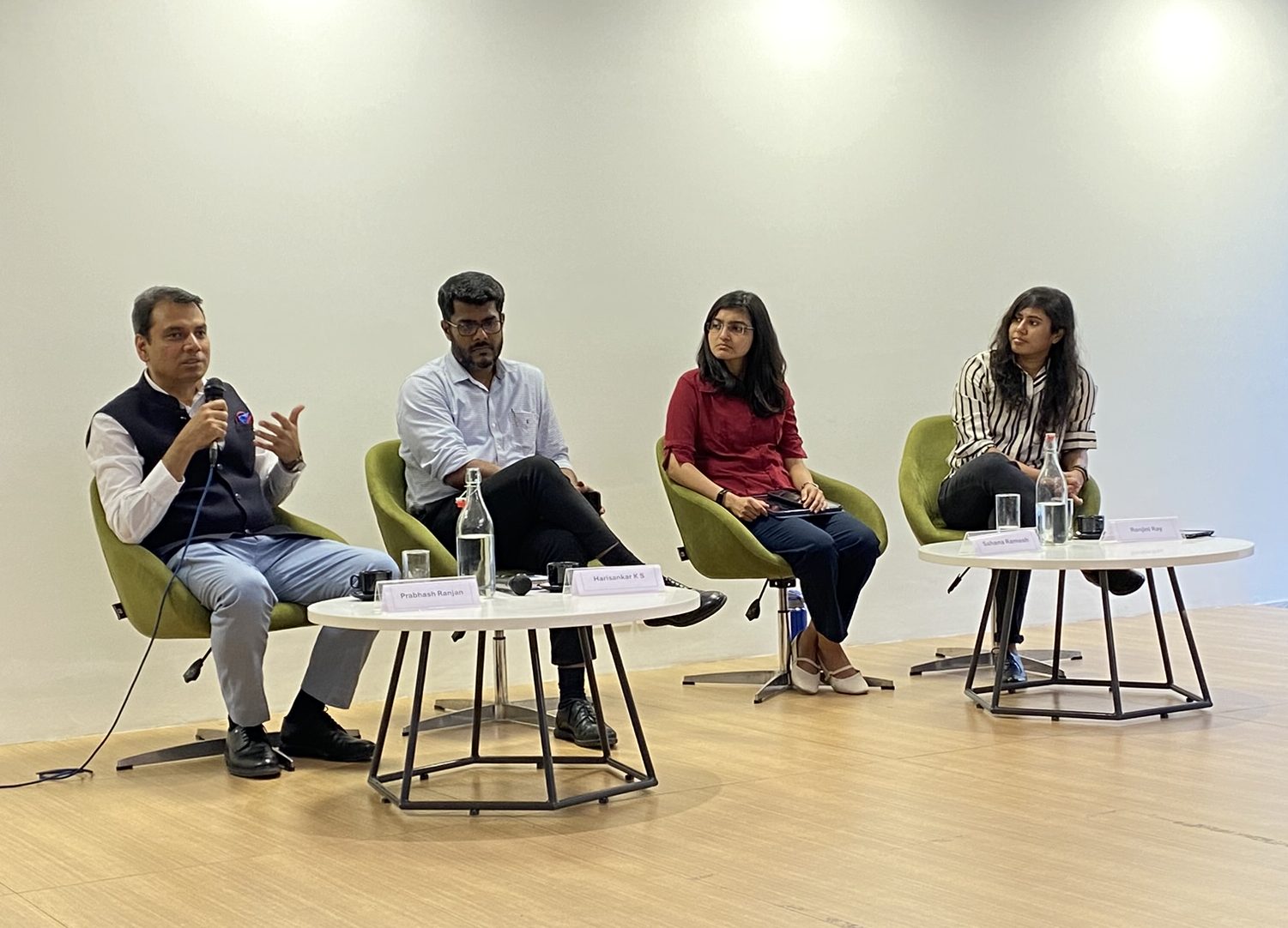 The Ministry of Commerce Chair on International Trade Law, NLSIU organised a book talk at the NLS Library by Dr. Prabhash Ranjan on his book ‘India and Investor-State Dispute Settlement.’ The talk was held on March 28, 2025 at 4.00 pm.
The Ministry of Commerce Chair on International Trade Law, NLSIU organised a book talk at the NLS Library by Dr. Prabhash Ranjan on his book ‘India and Investor-State Dispute Settlement.’ The talk was held on March 28, 2025 at 4.00 pm.
The talk was moderated by Ms. Ronjini Ray, Assistant Professor, NLSIU and Affiliated Faculty, MOC Chair. Dr. Harisankar K Sathyapalan, Associate Professor, NLSIU and Ms. Sahana Ramesh, Assistant Professor, NLSIU were the discussants.
Registration is mandatory for visitors from outside the NLS community. You can register for the talk here. [closed]
About the Book
Dr. Prabhash Ranjan explores the two competing narratives of investor-state dispute settlement (ISDS) and focuses on the six ISDS cases India lost. On the one hand, ISDS is chastised for affronting the State’s sovereign regulatory power – the Philip Morris narrative. On the other hand, ISDS allows investors to hold States accountable for abuse of public power – the Yukos narrative. This book argues that India’s ISDS story resembles the Yukos narrative.
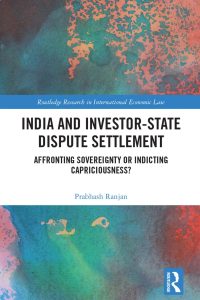 With a focus on six case studies, this book examines the reasons that led to foreign investors suing India and the following developments. These ISDS claims are divided into four categories: a case arising from judicial actions, claims brought because of the cancellation of a contract to lease spectrum, conflicts resulting from the imposition of retroactive taxes, and disputes arising from the actions of sub-national governments. Based on India’s recent treaty practice, the book also contends that India is de-legalizing and de-judicializing international investment law. By telling India’s ISDS story, the book drives home the point that rectifying the ISDS system’s flaws requires both narratives’ centrality. Excessive focus on the Philip Morris narrative will replace the existing imbalances with a new one where the scale tilts towards the States to the detriment of foreign investment.
With a focus on six case studies, this book examines the reasons that led to foreign investors suing India and the following developments. These ISDS claims are divided into four categories: a case arising from judicial actions, claims brought because of the cancellation of a contract to lease spectrum, conflicts resulting from the imposition of retroactive taxes, and disputes arising from the actions of sub-national governments. Based on India’s recent treaty practice, the book also contends that India is de-legalizing and de-judicializing international investment law. By telling India’s ISDS story, the book drives home the point that rectifying the ISDS system’s flaws requires both narratives’ centrality. Excessive focus on the Philip Morris narrative will replace the existing imbalances with a new one where the scale tilts towards the States to the detriment of foreign investment.
This is a useful reference for scholars and practitioners interested in ISDS and its implications for India.
About the Author
Dr. Prabhash Ranjan is a Professor at the Jindal Global Law School. He holds a PhD in Law from King’s College London, where he studied on a King’s College London doctoral scholarship. Dr. Ranjan studied for an intercollegiate LLM programme in London at the School of Oriental and African Studies (SOAS) and University College London (UCL). He read for his LLM as the prestigious British Chevening Scholarship recipient. Dr. Ranjan is also a Visiting Professor at the National University of Juridical Sciences (NUJS), Kolkata, and an International Fellow at the National Institute of Military Justice, Washington DC. Previously, he taught at South Asian University – a university established by the SAARC nations, National Law University Jodhpur and NUJS. He has been an Alexander von Humboldt Fellow at the Max Planck Institute for International and Comparative Law, Heidelberg, a Visiting Scholar at Brookings India; a Visiting Fellow at the Lauterpacht Centre for International Law, Cambridge University; and a Transnational Summer Law Institute Fellow at the Transnational Law Institute, Dickson Poon School of Law, King’s College London.
As an external consultant, Dr. Ranjan has handled various projects from key UN organisations like the United Nations Development Programme (UNDP), United Nations Economic and Social Commission for Asia and the Pacific (UNSCAP), and United Nations Conference on Trade and Development (UNCTAD); and also from other prestigious organisations like the Centre for WTO Studies, IIFT; Federation of Indian Chambers of Commerce and Industry; Trade Impact BV; Linklaters – an international law firm; and University of Pennsylvania’s Centre for Advanced Study of India.
Excerpts from the Talk
“There is a lack of a mechanism that can hold the executive and the other governmental powers accountable. As an international lawyer, I believe that if ISDS is that mechanism then so be it. Let ISDS hold governments accountable for their wrong actions! While TWAIL (Third World Approaches to International Law) scholars and those who think international law is a colonial project will have a problem with this, but given the current context, I think international investment law can be a way through which these powers can be held accountable”
“In my opinion, it makes more sense to have investment chapters as part of FTAs (Free Trade Agreements) because the reason why India has started signing FTAs is because it wants to be part of global supply chains. Global supply chains require both trade and investment. Now, if India is undertaking commitments on international trade law, then why is it shying away from commitments on international law of foreign investment.”
Reflections from the Author
“My book on India and ISDS basically focusses on India’s story on investor state dispute settlement. In this book, I have looked at six cases which India lost, and I’ve tried to argue that in all these cases it was primarily because of bad governance and the absence of the rule of law. It wasn’t because India was adopting a genuine regulatory measure. So this narrative or this argument is more for India to self introspect and improve its domestic governance.
And I enjoyed talking about my book at NLS. NLS is the top law school of India. I had wonderful discussants, and wonderful conversations with young students who were very curious about what I have written, and they asked very insightful questions, which I was very happy to answer. So I’m very happy to be here.”


